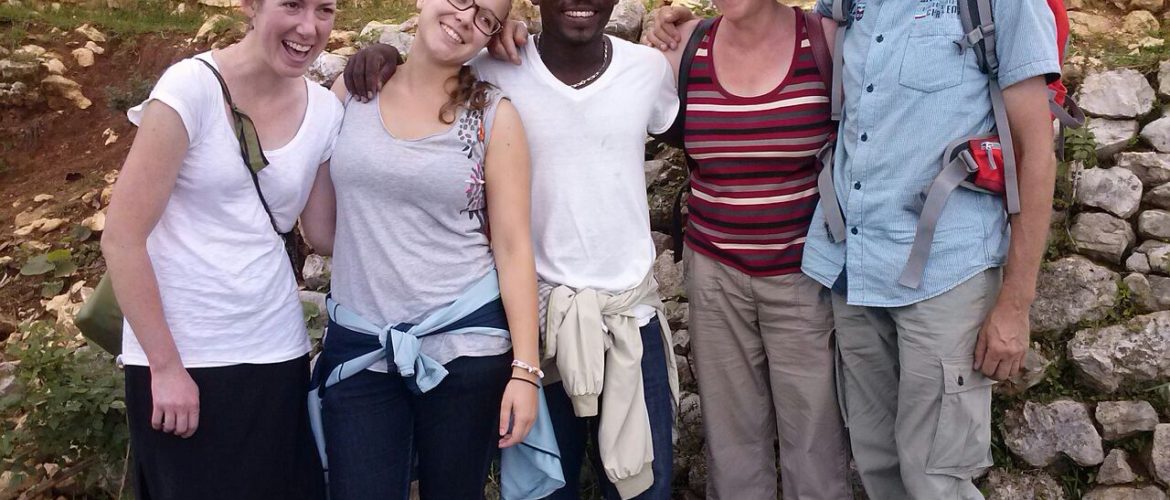How many languages do you speak??
It’s so interesting to hear how people answer this question; I honestly never know what to respond. Three? One? Two and three quarters? Where is the bar we’re setting….
One of the things I loved most about my time in Haiti was the opportunity to not only be immersed in Haitian culture and language, but also to be constantly engaged with people from all over the globe. The first night I stayed over at the NPH home in Kenscoff, I remember realizing with awe that of the ten people in the room, we were from eight different countries. Aside from Kreyol (and French and English), most days I would also hear people speaking Italian, Spanish, and German. I also clearly remember one night just after I arrived when one of my Italian friends had the entire kitchen laughing because he (inadvertently) spoke a single sentence using three different languages. It was brilliant!
That said, when you’re speaking a non-native language (or languages) consistently, it can be exhausting. It takes an incredible amount of mental energy to try and not only catch all of the words that are being spoken, but also understand the context and cultural significance of everything that’s been said. After I became comfortable enough living and working in Haiti, I was sometimes frustrated and disappointed by my lack of progress in learning Kreyol. Even after eight months I felt far from the point where I could truly keep up when natives were speaking around me, and I felt like I had the same conversations over and over. And over. And OVER. “Kouman ou ye?” “Byen, mesi, e ou menm?” “Byen, gras a Dieu.” “Kouman fanmi ou ye?” “Tout bagay anfom.” “M kontan pou tande sa.” And at some point after that…there were so many instances where I desperately wanted to continue the conversation, but…I just couldn’t think of enough words that I knew! I reflect on this often now that I’m home and can effortlessly eavesdrop on any conversation occurring nearby…or know with certainty that I will both know and understand every single word that somebody says to me…or can painlessly make small talk with a stranger for hours, if need be…it makes life so easy!!!!
I was discussing this with a friend, and she pointed out that when you’re first learning a language, ANY progress seems monumental because you’re starting from nothing. Once you have the foundation built, however, improvements can seem slower—it’s much harder to make the transition from being able to function in daily life to being able to have nuanced, in-depth conversations about more complex topics. Not long after I returned to the states, I saw this article, which articulated some similar themes eloquently:
http://www.economist.com/blogs/prospero/2015/05/johnson-polyglots
There’s definitely a difference between speaking a language and just talking in one, and it’s fascinating to learn that even fluent speakers may know only one-tenth of the words in a given language that a native speaker does. Perhaps the best conclusion to take away from this is as the author wrote: “Often asked, it is impossible to give an easy answer: ‘How many languages do you speak?’ The more languages one has studied and the more experience one has, the more the answer feels like ‘none!’”
by Katie Lawler on August 20, 2015
Be sure to check out Katie’s personal blog @ http://katiemarielawler.blogspot.com/ for more stories from her life and work at the Saint Damien’s Pediatric Hospital in Tabarre, Haiti.
Editor’s note: Thank you so much to Katie, as always, for sharing her thoughts and entries with us! We get where she’s coming from, but are also confident in her drive to keep learning! Now we want to hear from you: Have you experienced a similar conundrum in your language learning journey? And, we really can’t resist: How many languages do you speak?
Kenbe la zanmi nou yo!

